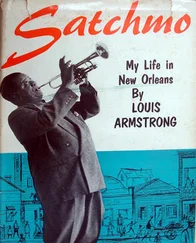Elbert L. Watson - Tennessee at the Battle of New Orleans
Здесь есть возможность читать онлайн «Elbert L. Watson - Tennessee at the Battle of New Orleans» — ознакомительный отрывок электронной книги совершенно бесплатно, а после прочтения отрывка купить полную версию. В некоторых случаях можно слушать аудио, скачать через торрент в формате fb2 и присутствует краткое содержание. Жанр: foreign_prose, История, foreign_edu, foreign_antique, на английском языке. Описание произведения, (предисловие) а так же отзывы посетителей доступны на портале библиотеки ЛибКат.
- Название:Tennessee at the Battle of New Orleans
- Автор:
- Жанр:
- Год:неизвестен
- ISBN:нет данных
- Рейтинг книги:5 / 5. Голосов: 1
-
Избранное:Добавить в избранное
- Отзывы:
-
Ваша оценка:
- 100
- 1
- 2
- 3
- 4
- 5
Tennessee at the Battle of New Orleans: краткое содержание, описание и аннотация
Предлагаем к чтению аннотацию, описание, краткое содержание или предисловие (зависит от того, что написал сам автор книги «Tennessee at the Battle of New Orleans»). Если вы не нашли необходимую информацию о книге — напишите в комментариях, мы постараемся отыскать её.
Tennessee at the Battle of New Orleans — читать онлайн ознакомительный отрывок
Ниже представлен текст книги, разбитый по страницам. Система сохранения места последней прочитанной страницы, позволяет с удобством читать онлайн бесплатно книгу «Tennessee at the Battle of New Orleans», без необходимости каждый раз заново искать на чём Вы остановились. Поставьте закладку, и сможете в любой момент перейти на страницу, на которой закончили чтение.
Интервал:
Закладка:
Elbert L. Watson
Tennessee at the Battle of New Orleans
I
Few events in the history of our nation have left the imprint of greatness upon participating individuals and groups as did the memorable Battle of New Orleans, January 8, 1815, the culmination of the War of 1812. Out of the great victory, there emerged on the national scene, in the person of Andrew Jackson, a leader destined for future greatness. At the same time, those dissident Federalist voices which regarded disunion as the solution to the ills facing the young republic were quieted. With the battle over, the abortive Hartford Convention of December, 1814, stood in mute contrast to the patriotic devotion to country rendered by unlearned frontiersmen. 1 1 O. P. Chitwood, F. L. Owsley, and H. C. Nixon. The United States from Colony to World Power , (New York, 1954), 218. Delegates from Massachusetts, Connecticut, Rhode Island, Vermont, and New Hampshire met at Hartford, Connecticut, December 15, 1814, to declare their opposition to the war. Declaring that a state could interpose its authority against unconstitutional acts of the Federal Government, the Convention also proposed seven constitutional amendments and appointed a committee to go to Washington to negotiate with the Government. Shortly after the committee’s arrival, however, word came of the overwhelming American victory at New Orleans, so that the representatives retired without revealing the purpose of their trip.
The question of the possession of legal title to western lands acquired from France by the Louisiana Purchase in 1803 was quickly settled. Not the least result was the breaking of alliances which had existed between the Creek Indians and their British and Spanish allies.
It is impressive that so much could be accomplished for young America from a military engagement which lasted little more than two hours. The Battle of New Orleans, which occurred after the signing of the peace treaty at Ghent in December, has been referred to as a useless expenditure of life and time. One must remember, however, that the issues leading to the battle evolved over a long period of time, many of them dating back to the Revolution. A climax to the friction existing between America and Great Britain was inevitable. In this conflict, Tennessee played a prominent role, not only as a participant in the final action of the war, but in the developments preceding it. Indeed, it is important to note that Tennessee was influential in putting into motion the machinery which brought about the dramatic event, from which national attention was focused upon the Volunteer State and her courageous sons.
II
Felix Grundy, Nashville’s vocal and eloquent attorney, was elected in 1811 to the United States Congress on a platform demanding war with Great Britain. Grundy, a native Virginian who had also lived in Pennsylvania and Kentucky, resented the policy of Spain and Great Britain which was to incite the southern Indians against frontiersmen who were inexorably pushing further to the west. Tennessee, then in its early commercial development, was particularly concerned over this issue because the trade routes to New Orleans and Mobile were under almost constant attack by well-armed red men.
Once seated in Congress, Grundy wasted no time in pressing his attack. He aligned himself with Henry Clay, John C. Calhoun, William Lowndes, and others who earned for themselves the title “War Hawks” by their insistence upon war. To them, the time was ripe for such a step since the Napoleonic War with England was in progress, and it offered an opportunity for America to profit from the turmoil in Europe. Unrelentingly the “War Hawks” pressed their cause until public opinion forced a reluctant Congress and President James Madison to declare war against England on June 16, 1812. 2 2 The northern states were more concerned with the infamous “Orders of Council” passed by the British Government permitting that nation’s navy to search any United States ship on the pretense of looking for English deserters, and forbidding any intercourse between France and America. The firing on the American frigate Chesapeake in the summer of 1807 by the British warship Leopard for the former vessel’s refusal to be searched, brought the two countries dangerously close to war, and Federalist apathy was almost swept away by an aroused public opinion.
Tennesseans had watched with dismay the significant success which British troops enjoyed along the Canadian boundary, and across the northeastern tier of states. Their concern was intensified with the burning of Washington on August 24, 1814. Many westerners regarded Federalist inertia toward the war with Britain as largely responsible for the ineffective resistance being offered. Some Northern governors had refused to answer the War Department’s call for militia, while others would not assume their proportionate share of the financial obligation.
After the sack of Washington, the British vessels and troops disappeared and left Americans wondering where the next blow would come. James Monroe, the tough-fisted new Secretary of State, concluded that the abrupt thrust against Washington and Baltimore was only a feint, designed to confuse the government while the enemy concentrated his forces elsewhere for a major invasion. With winter approaching, it seemed reasonable to assume that the strike, if made, would be in the South—probably at some point in the Gulf region where the defenses left much to be desired. As Monroe contemplated the portentous days ahead, he was relieved to know that the newly appointed Commander-in-Chief of the Seventh Military District, comprising the states of Tennessee, Louisiana, and the Mississippi Territory, was Major General Andrew Jackson of Tennessee. 3 3 Charles B. Brooks, The Siege of New Orleans . (Seattle, 1961), 12. Jackson assumed command of the Military District on May 28.
Jackson had recently received national attention by the overwhelming victory which he and his Tennessee militiamen, led by Generals John Coffee and William Carroll, won over the Creek Indians at the Battle of Horseshoe Bend on March 27, 1814. There the westerners struck a mortal blow at the repugnant British-Indian alliance, which many believed was responsible for the infamous massacre of men, women, and children at Fort Mims.
III
On his return from Horseshoe Bend, Jackson was acclaimed throughout Middle Tennessee for his victory, and was given spectacular public receptions in Gallatin and Nashville. But his stay in Tennessee was brief and he moved south again, this time to Mobile, where he established headquarters in late August, 1814. 4 4 Enroute to Mobile, Jackson on August 10 concluded a peace treaty with the Creeks, requiring that tribe to reside on lands bordered by the Coosa River to the west, the Chattahoochee in the east, and to the south, by a line running east and west. It was thought that the Creeks and Seminoles would thus be separated, and contact broken with British agents. John H. DeWitt, “General James Winchester, 1752-1826,” in Tennessee Historical Magazine I (1915), 183.
Jackson’s use of Mobile as his base of operations was fortunate, for two weeks later British vessels appeared at the entrance to Mobile Bay and made a concerted attack on Fort Bowyer (now Fort Morgan). However, the tiny garrison of 130 men stood fast and when one of the British frigates ran aground, exploded, and burned, the fleet withdrew to an unknown area. Jackson speculated over Britain’s future intentions.
The thrust against Mobile convinced Jackson that an invasion of major proportions somewhere along the coast was imminent. A likely site, he thought, would be Pensacola, which was still under Spanish control. Spain, it will be recalled, was England’s ally against France but was neutral toward America. Spain’s neutrality, Jackson believed, was only a veneer for her selfish interests which she would direct against the United States the moment a suitable opportunity arose. Then, too, there were the Creeks. Jackson had broken their power at Horseshoe Bend, but they remained in the vicinity, possibly ready to resume hostilities if supported by a strong belligerent. Before leaving Nashville, Jackson had conferred with Governor Willie Blount about sending a brigade of mounted Tennessee militiamen under Brigadier General John Coffee to join him in Mobile. Now he sent urgent word for the militiamen to come without delay!
Читать дальшеИнтервал:
Закладка:
Похожие книги на «Tennessee at the Battle of New Orleans»
Представляем Вашему вниманию похожие книги на «Tennessee at the Battle of New Orleans» списком для выбора. Мы отобрали схожую по названию и смыслу литературу в надежде предоставить читателям больше вариантов отыскать новые, интересные, ещё непрочитанные произведения.
Обсуждение, отзывы о книге «Tennessee at the Battle of New Orleans» и просто собственные мнения читателей. Оставьте ваши комментарии, напишите, что Вы думаете о произведении, его смысле или главных героях. Укажите что конкретно понравилось, а что нет, и почему Вы так считаете.












